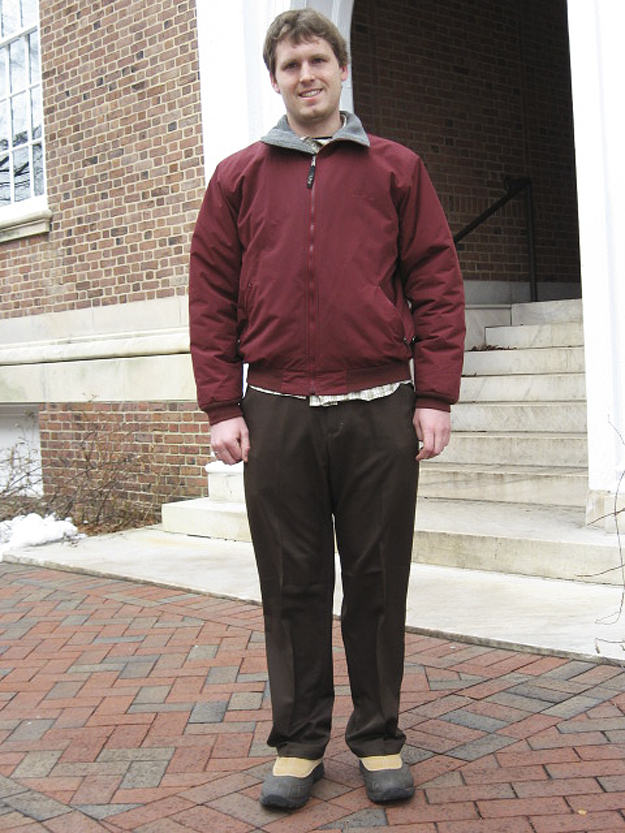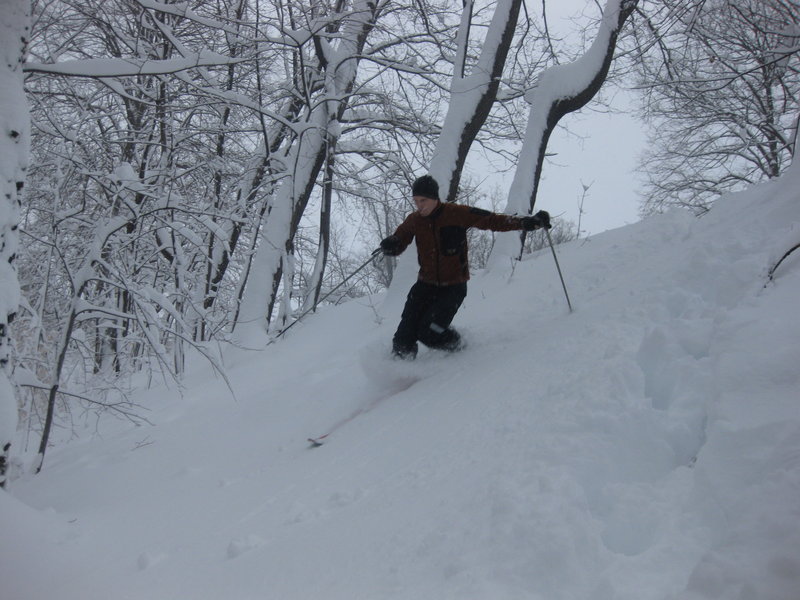BALTIMORE — Andy Tonge gingerly and stiffly navigated icy sidewalks and paths last week as he walked to the Johns Hopkins University building where he spends 10 hours a day immersed in computer simulations of complex scientific problems.
Tonge, a Maine native from the town of Rome, is still recovering from injuries he sustained Dec. 28 when the chairlift he was riding at Sugarloaf Mountain derailed, dropping him and his father, Rick Tonge, about 30 feet to the snowy slope.
The Tonges were in the last chair that passed the tower on the Spillway East lift before the cable derailed there.
They are among five accident victims who have retained a law firm to represent them in potential injury claims. At the advice of his attorney, Benjamin Gideon of Berman & Simmons in Lewiston, Andy Tonge declined to speak about what he saw and experienced before and during the accident.
But in an interview here last week, Tonge talked at length about the derailment’s impact on a life filled with skiing, hiking, and studies as a mechanical engineering graduate student.
Rick Tonge, 54, suffered a muscle injury. After the accident, he was taken to Franklin Memorial Hospital Farmington, where he was X-rayed and released.
Andy Tonge, 25, suffered compression fractures in two vertebrae, spent two days at Maine Medical Center in Portland, and was fitted for a back brace that he expects to be strapped into until mid- to late March.
He must wear the brace at all times except when he sleeps flat on his back. He needs help putting the device on each morning.
Tonge doesn’t take painkillers and didn’t need surgery, but he said he is in moderate pain.
More aggravating, he said, is just how difficult everyday tasks have become.
He now must get up from his work periodically to walk around. And while sitting at his desk, surrounded by computers, he finds it awkward to shift positions and reach for objects or computers in various places. A dropped pen is a major project.
He wears L.L. Bean winter boots – he now has a slip-on model, because he can’t bend over to tie a pair of shoes.
“I can’t sit for long periods and I can’t reach stuff easily,” Tonge said. “Everything I do has to be done more deliberately.”
Tonge has been told that he will recover from his injuries and at some point will be able to ski again – at his beloved Sugarloaf, where he went about 60 days a winter during his undergraduate days at the University of Maine, and on the backcountry slopes where skiers don’t use lifts, just strong legs to hike up the trail.
He probably will develop arthritis in his back earlier than he should, he has been told. However, thinking about what people go through after more serious injuries helps him keep matters in perspective.
“It has definitely changed my life since I have been in the brace,” Tonge said. “It definitely has made me value my life and have a greater appreciation of the challenges people have who are less fortunate than me, like people in a wheelchair, and how hard life is for them.”
Still, he doesn’t minimize the severity of the accident.
“I remember the impact and thinking, ‘Wow, my back hurts and I don’t think I want to move that much,’ ” Tonge said.
He’s excited at the thought of skiing again, and doesn’t think that riding a chairlift will give him pause. He is looking forward to getting back to Sugarloaf, hopefully next winter break, and skiing down his favorite trail, Narrow Gauge.
He wants skiing to remain a big part of his life, saying, “It helps you enjoy the winters in Maine.”
Washington Bureau Chief Jonathan Riskind can be contacted at 791-6280 or at: jriskind@mainetoday.com
Send questions/comments to the editors.




Success. Please wait for the page to reload. If the page does not reload within 5 seconds, please refresh the page.
Enter your email and password to access comments.
Hi, to comment on stories you must . This profile is in addition to your subscription and website login.
Already have a commenting profile? .
Invalid username/password.
Please check your email to confirm and complete your registration.
Only subscribers are eligible to post comments. Please subscribe or login first for digital access. Here’s why.
Use the form below to reset your password. When you've submitted your account email, we will send an email with a reset code.